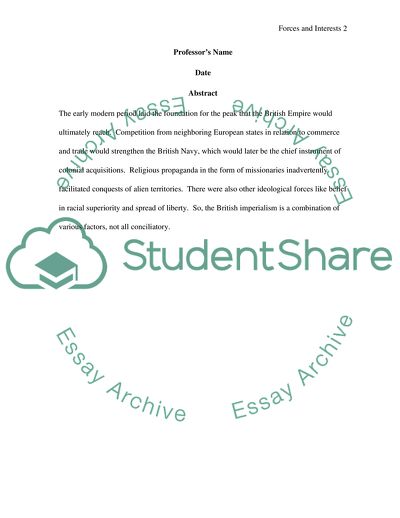Cite this document
(Forces and Interests that Lay Behind English Overseas Expansion Case Study, n.d.)
Forces and Interests that Lay Behind English Overseas Expansion Case Study. https://studentshare.org/history/1703092-10-what-forces-and-what-interests-lay-behind-english-overseas-expansion-and-colonisation-in-the-late-16th-and-17th-centuries
Forces and Interests that Lay Behind English Overseas Expansion Case Study. https://studentshare.org/history/1703092-10-what-forces-and-what-interests-lay-behind-english-overseas-expansion-and-colonisation-in-the-late-16th-and-17th-centuries
(Forces and Interests That Lay Behind English Overseas Expansion Case Study)
Forces and Interests That Lay Behind English Overseas Expansion Case Study. https://studentshare.org/history/1703092-10-what-forces-and-what-interests-lay-behind-english-overseas-expansion-and-colonisation-in-the-late-16th-and-17th-centuries.
Forces and Interests That Lay Behind English Overseas Expansion Case Study. https://studentshare.org/history/1703092-10-what-forces-and-what-interests-lay-behind-english-overseas-expansion-and-colonisation-in-the-late-16th-and-17th-centuries.
“Forces and Interests That Lay Behind English Overseas Expansion Case Study”. https://studentshare.org/history/1703092-10-what-forces-and-what-interests-lay-behind-english-overseas-expansion-and-colonisation-in-the-late-16th-and-17th-centuries.


